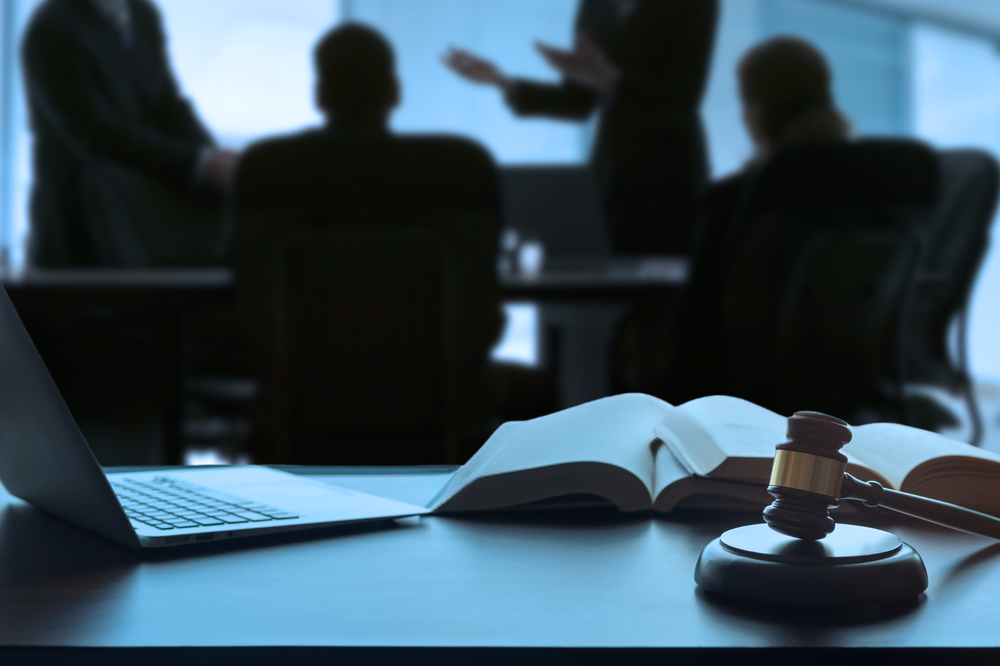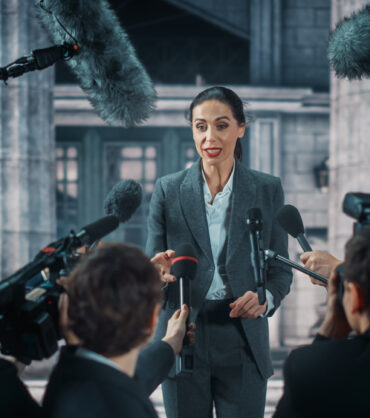
Emirates Association for Lawyers and Legal – First Law Forum – The Role of Lawyers in Establishing Judicial Principles
- Home
- Blog Standard
- Insights & News
- Emirates Association for Lawyers and Legal – First Law Forum – The Role of Lawyers in Establishing Judicial Principles
The UAE justice system is not based solely on the triad of security, law, and judiciary; rather, it stands on a quartet consisting of security, law, judiciary, and advocacy.

Preamble:
Many people, including those within the legal profession, are unaware that the judicial principles established by the higher courts are, for the most part, conceived and shaped by lawyers. Even if lawyers are not responsible for the exact wording, they are often the architects of the underlying ideas and meanings. However, this critical role remains behind the scenes, confined within the legal memoranda submitted to the courts throughout the course of a lawyer’s defense of their client. What is often overlooked is the significant contribution of lawyers to the judicial process. Our collective memory tends to focus solely on the judge, assuming that they alone are responsible for shaping the legal process from start to finish.
The present paper aims to highlight the role of lawyers in the judicial process, particularly in laying the foundation for judicial principles through their pursuit of judicial truth and their interpretation and application of legal texts. Since lawyers play a pivotal role in establishing legal principles, it is only logical to first shed light on their legal function and profession before delving into their broader impact. May success be granted.
The Legal Status of Lawyers and Their Profession
Who is a Lawyer?
Federal Law No. (23) of 1991 on the Regulation of the Legal Profession and its Executive Regulations do not provide a direct definition of the term “attorney.” However, Article (2) of the law defines a lawyer through their profession, stating that: “[ Lawyers are those who practice the legal profession in view of providing judicial and legal assistance to whomever so requires.…].” The law then sets out provisions governing lawyers, including the conditions for their registration in the lawyers’ registry, the activities they are prohibited from engaging in alongside practicing law, and their professional duties, such as signing statements of claims and appeals, memoranda, receiving and notifing legal documents, attending court sessions, pleading cases and representing clients, etc.
The law also outlines the rights of lawyers, particularly their right not to be held accountable for statements made in their oral pleadings or written memoranda as part of their defense. It grants them the right to accept or decline representation, ensures that they cannot be investigated or have their office searched except by a public prosecutor, allows them access to case files and copies of documents, and protects their office and its contents from seizure when used for professional purposes. Furthermore, the law affirms their right to receive legal fees. Additionally, the law specifies the duties of lawyers, the most notable of which include adhering to the principles of honor, integrity, and honesty in both professional and personal conduct; refraining from any work that conflicts with the dignity of the profession; avoiding self-promotion in a manner inconsistent with the profession’s ethics and traditions; and maintaining confidentiality regarding any information entrusted to them or acquired through their legal practice,,,, etc.
The law also established a special judicial framework for the disciplinary prosecution of lawyers in cases where they commit acts warranting accountability. In summary, the Law on the Regulation of the Legal Profession grants lawyers a special legal status by placing them within interconnected legal frameworks. These include the framework of registration in the lawyers’ registry, the framework of the Lawyers’ Admission Committee, the framework of rights and obligations, and the framework of disciplinary and accountability measures. I believe that these frameworks are sufficient to protect lawyers as individuals practicing the legal profession. However, lawyers shall defend these frameworks whenever they face any violations or attempts to undermine them. Unfortunately, this is something we have failed to do so far. I have previously discussed this issue in several articles. What is the Legal Profession?
Article (1) of the Law on the Regulation of the Legal Profession defines it as follows: The legal profession is a liberal profession which provides a public service regulated by the present Law and participates with the judicial authority in fulfilling the mission of justice, asserting the sovereignty of the law and guaranteeing the right to defend rights and freedoms. From this article, along with other provisions in the same law, the key characteristics of the legal profession can be identified.
First and foremost, it is an independent profession, meaning that it is not administratively or functionally tied to the administrative or judicial system that governs judges or their assistants. It is independent because no one is forced to enter or remain in the profession against their will. Furthermore, it is independent in the sense that a practicing lawyer is not compelled to perform their duties in a predetermined manner, especially in their pleadings, memoranda and requests, as long as they act within the bounds of the right to defense.
The Legal Profession as a Public Service
Although the legal profession is a private civil activity carried out by lawyers on behalf of individuals and private entities in exchange for legally determined or contractually agreed-upon fees, the law recognizes it as a public service. This classification aligns the legal profession with other essential public services provided by the state, such as healthcare, education and transportation.
Due to its close connection with the judiciary and its role in litigation and defense of rights, the legal profession is considered a public service. Consequently, being classified as a public service means that the legal profession should enjoy the same protections, privileges, and immunities as other public services.
The Legal Profession as an Equal Counterpart to the Judiciary
Article 1 of the Law on the Regulation of the Legal Profession clearly defines the nature of the profession. After establishing that it is an independent profession that provides a public service, the article explicitly states that the legal profession participates alongside the judiciary in achieving the following:
- Upholding the mission of justice
- Affirming the rule of law
- Ensuring the right to defense of rights and freedoms
These three principles lie at the core of the judiciary’s function. Therefore, the law’s acknowledgment of the legal profession’s role as a participant in these fundamental objectives suggests that it should be regarded as on par with the judiciary. This implies that lawyers and the legal profession should be afforded equal treatment to judges and the judiciary at the very least in terms of guarantees, protections and social status.
Towards a Better Legal Status for Lawyers and Their Profession
It deeply saddens and concerns me that the perception of lawyers and their profession is distorted in the minds of many in my country. Instead of being recognized as individuals who study the law, practice law to establish justice, and defend the rights of the oppressed, lawyers are often unfairly portrayed as deceitful individuals who manipulate facts and prioritize financial gain. Many fail to realize that a lawyer embarks on a rigorous journey in search of truth, striving to present it before the judge, often facing great challenges in the process.
It pains me to see certain dramatic works, particularly TV series and films, misrepresent lawyers and portray them in an unworthy manner. It pains me to witness some lawyers (though they are few) engaging in behaviors that contradict the values, ethics, and traditions of the legal profession.
It pains me to see certain dramatic works, especially TV series and films, misrepresent lawyers and portray them in an unworthy manner. It pains me to witness some lawyers (though they are few) engaging in behaviors that have no connection to the values, ethics, and traditions of the legal profession. It pains me to see the legal profession being infiltrated by outsiders under various pretexts and justifications. It pains me to observe that some members of the judiciary fail to accord lawyers and their profession the respect and appreciation they deserve.
However, alongside these disappointments, there are also positive and uplifting aspects:
I am pleased with the nationalization of the profession.
I am pleased to see prominent lawyers who hold significant positions in the legal field both locally and globally.
I am pleased with the existence of a legal framework that unites lawyers.
I am pleased with the steady increase in the number of Emirati lawyers, both practicing and non-practicing.
I feel that we, as Emirati lawyers, are falling short in our duty toward our profession. We have the ability to establish a better legal framework for our profession through available legal means, one of the most significant being the Law on the Regulation of the Legal Profession.
This law has organized most of the fundamental aspects of the legal profession. As lawyers, we have the opportunity to present positive interpretations of its provisions, particularly those related to defining the objectives of the profession and the regulations governing lawyers’ rights and obligations.
Law Firms
Every Emirati lawyer practicing law has an office where they carry out their legal work. Through this office, a lawyer can contribute to improving the legal profession, not only by maintaining a high standard of interaction with clients but also by presenting and advocating for positive changes in the profession. This can be achieved using available social media platforms, particularly through well-crafted writings on topics relevant to lawyers and their profession.
Community Participation of Lawyers
Lawyers can engage with society in various ways, such as participating in local seminars and lectures, maintaining strong connections with law schools in the country, and taking part in radio and television programs, as well as press interviews and more….
Regular Communication with Decision-Making Bodies
This communication takes many forms, but some of the most important include engaging with the President and Rulers of the Supreme Council of the Union, Crown Princes—especially on national occasions—as well as the Cabinet, the Federal National Council, the Ministry of Justice, and the heads of federal and local courts, particularly the highest courts. This communication should be conducted through the Emirates Association for Lawyers and Legal.
Law Practice and the Judicial Engineering
The title may seem unusual to some, or even provoke skepticism due to its apparent contradiction—linking a branch of mathematics to a field categorized as a humanities discipline (the judiciary). However, this title is merely a metaphorical analogy. Just as engineering deals with lines, dimensions, surfaces, angles, quantities, and measurements, analyzing their properties and relationships to create structures that contribute to human welfare—the judiciary applies fundamental legal principles and concepts that embody justice as a supreme human value.
The lawyer is the one who engineers these legal concepts and principles, shaping them into their proper legal and judicial frameworks, ultimately leading to a request for the judiciary to achieve justice and pronounce the judicial truth. Through this legal engineering, the lawyer highlights its role and relationship with the judicial process, judicial truth and legal principles, as will be discussed below. The Lawyer’s Role in the Judicial Process: The term “judicial process” refers to all activities that contribute to resolving a dispute presented before the judiciary. In this broad sense, the judicial process begins from the moment a lawsuit is filed and registered before the court or its auxiliary bodies, such as the Public Prosecution or the Case Management Office.
In a narrower, more technical sense, the judicial process refers to the actions taken by the judge to resolve the dispute with a final and binding ruling. This may involve receiving or hearing witness testimonies, appointing experts, conducting inspections, listening to arguments presented by litigants or their legal representatives (lawyers), and reviewing memoranda, defenses and pleas submitted by the parties. If the judge is the primary figure in the judicial process, then the lawyer is the second most significant figure, especially in non-criminal cases. The lawyer contributes legal perspectives that influence the dispute’s facts, evidence and legal classification.
The arguments presented by the lawyer in defense of their client interact with the judge’s reasoning, either positively when the judge accepts them or negatively when they are set aside. If rejected, the judge shall justify this decision in their ruling. In legal doctrine, this is known as a “deficiency in reasoning” or a “violation of the right to defense.” In either case, the lawyer plays a crucial role in the judicial process in the technical sense.
The lawyer’s participation in the judicial process takes on a greater dimension when they escalate their involvement vertically—first by submitting their dispute to the Court of Appeal, citing a defect in the judgment due to an error in understanding the facts. This is then further escalated by challenging it through the Court of Cassation, alleging errors in the application, interpretation and violation of the law.
The Relationship Between the Lawyer and Judicial Truth
The judge is not the only one searching for the truth in a legal dispute; the lawyer also seeks the truth in the same case, and so does the opposing party’s lawyer. However, judicial truth has three perspectives: one seen by the judge, one seen by the lawyer and one seen by the opposing lawyer. Each perceives it from their own viewpoint.
If you were to ask three artists to paint a sculpture, each would depict it differently from certain angles, even though the sculpture (the truth) remains the same. This analogy applies to legal disputes, where each opposing lawyer represents one side of the truth, while the judge alone represents both opposing sides of that truth.
A lawyer is neither deceitful nor dishonest when they highlight an aspect of the truth that benefits their client. In doing so, they do not alter the truth; rather, they select and emphasize the elements that serve their client’s interests. This intentional selection of factual elements may be perceived by those who are not specialized in law and advocacy as a distortion of the truth by the lawyer, and thus, as lying and deception towards the judge.
A lawyer, in its pursuit of revealing the truth, is obligated to be biased in favor of their client when presenting the aspects of the truth that support their case. This bias is an essential part of defending their client. In any case, a lawyer is not required to be neutral like a judge, because such neutrality would deprive the judge of seeing a crucial perspective of the truth that the lawyer was supposed to bring to light.
By the nature of their work, lawyers are partisan, and they should be. The truth can only shine clearly when explored from opposing angles. The bias of one lawyer toward their client inevitably provokes the bias of the opposing lawyer, compelling them to exert even greater effort. This intensifies the legal battle, where action provokes reaction, and the courtroom confrontation unfolds to its full extent. When this process reaches its peak, it serves its purpose in assisting the judge to fulfill their role as an arbitrator and achieve the proper balance that is fundamental to their mission.
Each lawyer’s defense casts different lights on various aspects of the case in a way that serves their own interest. A lawyer illuminates the points that support their claim while attempting to leave the opposing arguments in complete darkness. Fortunately, the defense presented by one party is complemented by the defense of the other. As a result, the judge’s primary role is to view the case in the light of both parties’ presentations, allowing the complete picture to emerge. From there, the judge constructs the judicial truth based on the evidence and arguments placed before them, taking from each side as they see fit, with no authority over them except their own conscience. And through this process, the judicial truth is revealed.
The Role of the Lawyer in Establishing Judicial Principles
There is significant confusion among many lawyers, judges and legal professionals between general principles of law and judicial principles. The general principles of law refer to the general, abstract, and unwritten rules that dominate legal systems in various countries. In this sense, the general principles of law are comprehensive rational and logical judgments from which subsidiary judgments branch out, guiding the legislator when enacting legislation.
They are closely aligned with the principles of natural law. For example, the principles of “contracts shall be performed in good faith,” “an appellant shall not be harmed by its own appeal,” “no crime or punishment without a legal provision,” and “whoever initiates an action shall bear its consequences” are all general legal principles. These principles exist across all legal systems, regardless of their foundations, philosophies or social orientations, as they are inherently aligned with justice and fairness. Fundamentally, general principles of law fall within the category of supplementary or secondary sources of law. However, the legislator may adopt a principle through a legislative provision, thereby elevating it to the category of primary legal sources. The principle may also be further developed into detailed provisions. (1).
As for the judicial principle, it refers to the substantive or procedural general rule established by the higher courts of law in the country when reviewing appeals through cassation. These principles guide similar future cases, are adhered to by lower courts, and are upheld by lawyers. In detail, one of the key functions of the higher courts, such as the Federal Supreme Court, the Dubai Court of Cassation, the Ras Al Khaimah Court of Cassation, and the Abu Dhabi Court of Cassation, is to unify the interpretation of legal provisions regarding a specific legal issue. This unified interpretation is what is known as a judicial principle.
A judicial principle functions as a respected and authoritative judicial precedent that reflects the judiciary’s stance on a particular issue. It represents a court’s interpretation of the law. For instance, when a higher court rules that “laws and similar provisions take effect only after they have been communicated to the public and brought to their knowledge, as there can be no obligation without awareness,” this establishes a judicial principle. It means that individuals cannot be held accountable for legal prohibitions, requirements or obligations unless the law has been published and made known thereto, whether in reality or by legal presumption. The source of a judicial principle is the judiciary, specifically the judicial ruling issued by a higher court. As such, it is an integral part of the judicial process, and its legal weight and binding authority depend on the status and rank of the court that issued the ruling upon which the principle is founded.
While a judicial principle is not inherently binding, it carries significant legal weight due to its issuance by the highest judicial authority responsible for ensuring the proper application, interpretation, and construction of the law. However, the UAE legislator intervened in one specific instance to grant judicial principles binding legal force. This was established in Article (187) bis, Paragraph 1, Clause (c) of the Civil Procedure Law, which stipulates that a cassation ruling may be overturned if it violates any judicial principle previously established by the court’s panels or full bench without referring the matter back thereto, contradicts principles consistently upheld by the court, or is in conflict with principles set by the authority responsible for unifying judicial principles between federal and local courts.
The true significance of a ruling by a higher court of law lies not merely in the rejection of an appeal or the annulment of a contested judgment, but rather in the judicial principle that the ruling establishes or affirms. This principle is not solely the creation of the judges, though they are the ones who articulate it in their judgments. During the cassation appeal process, the lawyer plays an essential role in shaping and formulating judicial principles through their engagement with legal texts, which are often open to multiple interpretations.
When a lawyer files a cassation appeal on the grounds that the contested judgment violates the law, misapplies it, or misinterprets it, they are essentially clarifying the assumptions underlying the legal provision, the case facts, and the legal issues raised by those facts. Additionally, the lawyer defines the limits and scope of the legal text, as well as its meanings, implications and references.
The lawyer’s role before the Court of Cassation, as well as their work before the trial court, helps highlight the legal error committed by the lower court’s judgment. This paves the way for the higher court to establish a judicial principle, reinforcing the lawyer’s participation as an integral part of the judicial process, as previously explained.
And our final supplication is: Praise be to Allah, Lord of all worlds.
The Document is completed.
Sharjah, September 13, 2022.
Subscribe Newsletter
Sign up to receive notifications about the latest news and events from us!
x
Contact Us!
Abu Dhabi: 2nd Floor, SJ Tower, 18th Street, Abu Dhabi.
Dubai: Office 1610, 16th Floor, Iris Bay Tower, Business Bay, Al Mustaqbal St.
Mail: [email protected]
Mon – Fri: 8.00am – 18.00pm / Sat & Sunday : Closed
x









